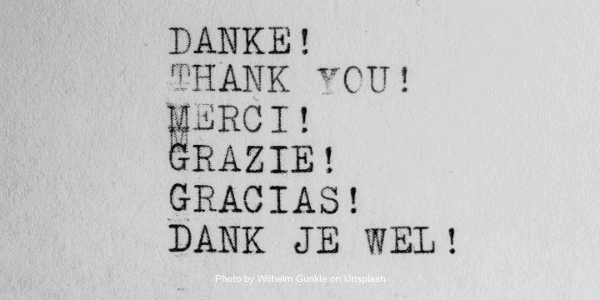I’m Not Interested in Your Personal Life (WT523)
Blog

You’ve heard me mention the REACH profiling system a number of times. This week, I was privileged to see one of the profiles in action.
I was talking with a new acquaintance who was explaining his philosophy on hiring and working with staff.
“I can’t stand it,” he said. “I hired this person and every morning I had to waste an hour while we talked about her kids, the dogs, what she did on the weekend, etc. before she would start work.”
I smiled to myself as I thought, “Wow! This is typical Driver behaviour”.
“And if that wasn’t enough,” he continued, “I then had to thank her for everything she had done that day and waste another 30 minutes while she told me what she was going to do after work.”
The Driver profile is interested in results. They are quick to take action, often making decisions with their gut. They don’t get small talk. If you understand the Driver, you’ll be less offended. They are “driven” to get results. We need Drivers. Without them, not much gets done.
The Advisor profile is similar to a Driver in that they are more focussed on tasks than people, however, they like to take their time to plan and organise things and are very methodical. You can’t rush an Advisor. Imagine then an Advisor and a Driver. The Driver wants to go, go, go and the Advisor says, “No, no, no, not yet. Have you thought about….? Have you considered …..?” Advisors are our risk mitigators.
Counsellors and Coaches are focussed on people. Coaches want to inspire. They want to know “why” and Counsellors want to know “Who”.
It doesn’t matter what your REACH profile is. They are all needed to make a team function at its best.
As I listened to my new Driver acquaintance, I could imagine how his employee felt. I imagined that they were probably a Counsellor, which is diagonally opposite the Driver on our profile matrix. Counsellors provide immense value in that they are there for the people. They complement the Driver.
As you read this, I’d like you to think about your own personality type and see if you can find it within yourself to be open to learning more about the other profiles. The more you know yourself and know others, the more results you’ll get, easier and quicker.
Think of it like learning another language. If you were going to Italy, you might learn a few words of Italian to help you get along in your travels. Same with the profiles. Whilst your personality doesn’t change much over time, you can increase your REACH. This is the degree that you are comfortable with the other profiles and the degree to which you can speak their language and relate to them.
If you’re a leader, you really do need to make sure you work on your REACH. The best leaders are able to influence their people because they relate to them on their terms. They understand people are different. They understand we need the differences and they actively seek to understand their people.
How about you? How well do you know yourself and your people?












